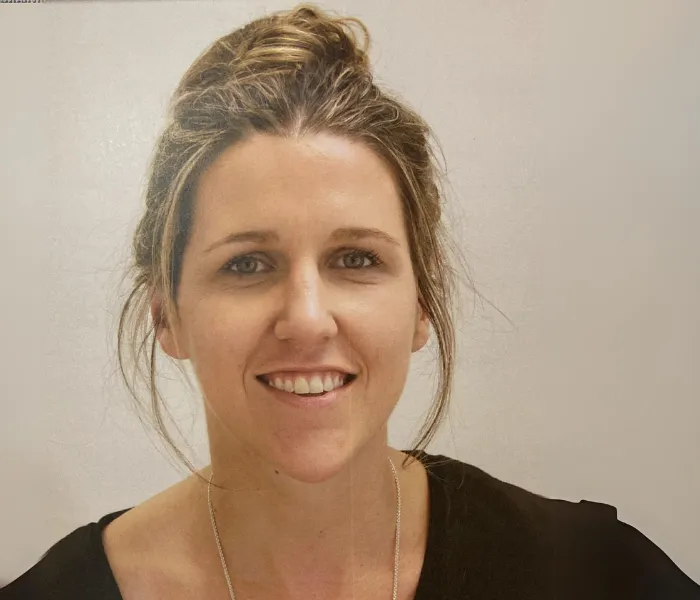Gillian Holland – NASENCO
Gillian Holland is a music teacher and aspiring SENCO, currently working at an international school in Malaysia. Although she is interested in all aspects of SEND, most recently, Gillian has found herself studying Dyslexia in greater detail. Stating that her long term goal is to become an assessor, which she hopes will give her the ability to bring this skill ‘in house’ to the school in which she works.
Having recently completed our National Award for SEN Coordination qualification, we caught up with Gillian to see how she got on.
What made you choose Real Training over other options?
Living in Malaysia, I was looking for a course that I could largely complete online. Having found Real Training through a google search, I felt that the online delivery of the content along with the accreditation of a UK university was the perfect match for me. When exploring the course content in more detail I was very impressed with the depth covered and the variety of activities involved in the qualification.
What was your experience of learning with Real Training?
I have really enjoyed studying with Real Training and found the whole process of Campus Online straightforward to navigate. I liked that the tasks were varied and that you didn’t have to complete them in a specific order. This really helped me to make progress as it allowed me to complete tasks based on the timeframe I had available and make use of this effectively.
I thought there was a good balance of ‘work-based’ tasks involving some level of interaction with an aspect of school life, and research focused tasks asking for an opinion on a given text or concept.
I also felt thoroughly supported by my tutor, Rachel, and knew that she was always at the end of a message thread if there was something I needed help with. The course exceeded the expectations I had and I would definitely use Real training for further studies.
How has the course helped make an impact at school?
Two projects I thoroughly enjoyed were the final assignments for Strand 2 and 3. Both of these allowed me to explore something relevant to the setting I work in. As an aspiring SENCO, this was hugely important as it gave me valuable experience in the development of an aspect of school life. Helping me to consider ways in which I would approach this if I were a SENCO. In one of these tasks, I looked at the transition between KS2 and KS3 and found ways to develop a potential action plan to improve this for future learners. As an all-through school, I was able to look at both sides of the transition point and reflect on what is needed to ensure that SEND learners were able to move through to the next stage in their education with as much support and preparation as necessary.
The second area I explored was the movement of SEND learning and pedagogy to online platforms as a result of the pandemic. Being able to research something so relevant was interesting and it was a great way to explore best practices from many different settings and countries across the world. I was able to use this and bring together ideas to adapt to my current school.
How has the course helped develop you as an educational professional and what do you hope to achieve with the new knowledge/skills in the future?
I was initially apprehensive when I began the course as my last period of high-level studying was 10 years prior when I completed my PGCE. However, the way the course is organised really helped me to ease back into this process and there was so much support available to ensure that my writing and work was to the level required for a Masters.
My original plan was to just complete my NASENCO qualification, yet the course and the content have encouraged me to look beyond this to explore further options for my professional development. After much consideration, I have decided to work towards my Masters in SEND. I have just started my Level 7 Structured Intervention in Literacy and Dyslexia with Real Training’s sister company ‘Dyslexia Action’ and then I plan to return to Real Training to complete the ‘Enquiry-based SEN’ to complete my Masters.
The decision on which route to take was difficult as there is so much choice available to you, but after emailing the team at Real Training and discussing my options I am really happy with the decisions that I have made.
Nick Wilding – MEd SEND
Nick Wilding is the Head of Student Support Services at an international school in Vietnam. Beginning his studies with Real Training in 2017, Nick embarked on our National Award for SEN Coordination course. A couple of years later this was followed by the Enquiry-based SEND module.
Since then Nick has completed some of our free-to-access courses as well. Nick says that his special interests in SEN are; awareness, assessment and knowing the whole child, partnerships with specialist teams and development of staff.
To see what Nick made of his time studying with Real Training, please see below:
What made you choose Real Training over other options?
Initially, I chose Real Training because of its links with Middlesex University. I had studied previously at this university and therefore knew that the qualifications would be both recognised and credible. At the time I was working internationally and therefore required a course delivered 100% online. The costs were very competitive and the responses to my questions in the decision phase helped me decide that I should register and sign up because all of my questions and queries were answered clearly, quickly, and sincerely.
The NASENCO award through Real Training became the obvious choice compared to other providers as they met my fundamental requirements. Due to the advice and support of the course leaders and tutors, the decision to study further with Real Training was made easy due to their expertise and the range of subject-specific courses. The Courses and Qualifications page on their website is like a ‘one-stop shop’ for a career in SEND provision.
Subsequently, my experiences have led me to recommend Real Training to many colleagues both in the UK and internationally.
What was your experience of learning with Real Training?
The first tutor feedback I received was both supportive and demanding. This set the tone for the academic standards. I was delighted that this was going to be a ‘real’ postgraduate course and not a ‘pay your money, get your certificate’ style course.
It had been so long since I had written academic essays, therefore the readily available access to advice on the Campus Online page, emails, and online tutorials with the tutor were invaluable. The response time of tutors and support with Campus Online helped with the momentum of my studies. I wasn’t able to study regularly each week so it was great that they were responsive when I most needed it.
I chose an online course to fit in and around my work and life. I must say the tutors and the design of the course allowed this flexibility. The setup of the course page allowed me to pick up where I had left off so I could clearly see what I had and hadn’t completed.
The links provided through all courses were essential to my success and to keep stress levels down. Living abroad limited my access to many texts and websites. Access to EBSCO, the library and Campus Buzz were all sources that provided me with the range of knowledge required to pass the academic requirements of the course, but to also feel that I had read extensively around the subject areas for personal growth also.
How has the course helped make an impact at school?
Firstly, it has kept me motivated in my career during a phase of questioning where I should go next. The ability to build my course to include areas of interest in addition to fundamental courses for anyone involved at the front line of SEND provision and the push for inclusion.
The NASENCO course allowed me to go back to basics and ask myself ‘why do I do this’, ‘what is the purpose of my role in this setting’. Moving on from these starting points, the course also allowed me to use experience combined with ongoing research and legislation. I believe this gave me a platform on which to improve my own working practices and school policy and procedures.
The research project that forms the Enquiry-based SEND module, has allowed me to appreciate the correct procedure to carry out and implement change within a setting. My project evolved around the need to improve staff awareness, confidence and training when working with a growing range of SEND within the school. The final project focussed on TA staff. Subsequently, individuals and small teams have taken on extra training linked to the following: PE lessons, assessment, observations and working with parents.
How has the course helped develop you as an educational professional and what do you hope to achieve with the new knowledge/skills in the future?
As the role of SENCO evolves it was essential to my career that I studied and passed the NASENCO course. The Access Arrangements and the Middle Leaders courses have allowed me to keep up to date and refreshed in these areas with the latter being the stimulus for the school to encourage a number of middle leaders to follow this course to bring more joined-up thinking in the school with regards to SEND and EAL students.
The research-based project has widened my appreciation of the purpose and importance of research to provide solid evidence, which can be woven with experience and the needs of the setting, with regard to training and change in a school. Therefore, the course has opened more opportunities for me when applying for roles in both academic and pastoral pathways
Finally, as the courses are validated by Middlesex University London, and the Professional Assessment Programme courses and qualifications also adhere to the standards set by the British Psychological Society (BPS), I am convinced that future courses targeting Psychology and Social/Emotional pathways will play a part in my training to help me evolve, explore and create wellbeing projects in the future.
Heather Blackburn – NASENCO
Heather Blackburn is a busy lady at her current school working as; Associate Assistant Principal, Head of Performing Arts, PE and Health and SENCO on the inclusion team. Heather states that as she has been learning she is gaining specific interests in; autism, attachment, dyslexia and ADHD.
Working in a mainstream secondary school in North Yorkshire, Heather recently completed her National Award for SEN Coordination qualification with Real Training. Learn more about Heather Blackburn‘s learning journey below.
What made you choose the Real Training course over other options?
Real Training has been recommended to me by others. However, the fact that it was online and could be completed at times to suit me was also an appealing feature of Real Training’s course delivery.
What was your experience of learning with Real Training?
It was very hard starting academic essays after 20 years. However, my tutor was very supportive and gave me lots of pointers. I enjoyed the course as it gave me enough background into SEN, alongside looking at local and national data. I also enjoyed the fact that I could produce PowerPoint presentations for assignments.
How has the course helped make an impact at school?
The course has allowed me to make an impact at school as my understanding of specific areas surrounding SEN has improved greatly. For example, how to use the code of practice and the legal side of SEN along with the inclusion of parents and students at all stages. I have also been able to implement improved CPD for teaching assistants. Lastly, I now have a much greater knowledge of how to set up and develop sensory circuits which are having a positive impact on those children with additional needs.
How has the course helped develop you as an educational professional and what do you hope to achieve with the new knowledge/skills in the future?
The course gave a great deal of background detail into SEN and the changes that have occurred over time. It gave me much better insight into parents’ feelings and how important it is to ensure the needs of a child are met in mainstream schools. Schools have a legal responsibility to consider the Equality and Disability act and to ensure they don’t cause unnecessary distress to children with SEN.
I feel my understanding of the impact of reasonable adjustments and how necessary they are for some children has developed. The course also gave a greater understanding of the graduate approach and how this should be shared with all teachers, alongside, how SEN is the responsibility of all staff and not just the SENCO.
David Griffiths – NASENCO & CPT3A
David Griffiths completed the Certificate in Psychometric Testing, Assessment and Access Arrangements course (CPT3A) in 2019. He has since also completed our National Award for SEN Coordination (NASENCO).
David is currently the SENCO of a secondary school in the Midlands, he has a keen interest in psychometric testing and SEND. Read below to see how David felt about his time studying both these courses with Real Training.
What made you choose Real Training courses over other options?
Real Training was recommended to me in a SENCO network meeting. I did some research on the course, assessment material and previous student experiences. Based on what I had read, it definitely sounded well-organised and suitable for my learning style.
What was your experience of learning with Real Training?
Overall, it went above and beyond my expectations. I chose the intensive route to complete CPT3A. The face to face content was excellent and really useful. The tutors were supportive, knowledgeable and friendly. Everything was explained clearly and I received excellent feedback. Whilst studying NASENCO I found my tutor was really helpful and encouraging throughout. I received clear and concise feedback, regarding how to approach each assignment and meeting the assignment criteria. I was undoubtedly impressed and have since recommended Real Training to all of my colleagues and friends.
How have the courses helped make an impact at school?
Completing the CPT3A qualification has allowed me to conduct psychometric testing for Examination Access Arrangements. Resulting in better support for the pupils and broadening my skill set within the school.
How have the courses helped develop you as an educational professional and what do you hope to achieve with the new knowledge/skills in the future?
Studying with Real Training has strengthened my knowledge of Special Educational Needs and Disabilities.
Priya Shah – MEd SEND and Inclusion
Priyadarshana completed her BSc (Hons) Psychology in the UK in 1993 and has been teaching for nearly thirty years.
She started off working in secondary mathematics in a private British community school in Kenya and was also their dedicated SENCO. In 2005, Priya joined another school in Kenya and currently works as a high school maths teacher and learning support teacher.
Priya Shah has recently completed her MEd SEND and Inclusion and told us what it was like to study with us.
What does graduating with your master’s degree mean to you on a personal and a professional level?
Acquiring an MEd in SEND and Inclusion after twenty two years as a teacher has really raised my confidence in general. The applications have been diverse; from being able to critically analyse information, to gaining the skills to write professional reports to carrying out action research and listening to all perspectives around an idea or argument.
What made you choose the Real Training courses over other options?
I was looking to gain membership on Register for Qualified Test Users (RQTU) with the British Psychological Society (BPS). I found the CPT3A course online. As I work overseas, Real Training offered a user-friendly online platform and the turn-around time for replies to emails or queries was very quick. I also found that all the tutors I had were educational psychologists which have a lot to offer in terms of knowledge, experience and wisdom. The school that I work in then approached me and encouraged me to continue courses to achieve a Masters. And so I did!
What was your experience of learning with Real Training?
The online platform was easy to use and the readings and videos were relevant to my work, thus the experience of learning was pleasant and interesting yet very rigorous. The amount of work to be done was not insignificant, but manageable once you get organised.
How have the courses helped make an impact at school?
I have used the skills of administering standardised tests and writing reports for external exam boards from the CPT3A course and more students have benefitted from exam access accommodations.
I have utilized the knowledge and skills from the NASENCO course for my role as the Learning Support Case Manager for grade 11 and 12 and as the untitled team leader of our Learning Support department. It’s improved the way I work with the Student Support Services Coordinator of the school as well as the grade level leaders who manage the Response to Intervention framework.
The Social, Emotional Learning course was a great learning experience and the knowledge gained has enhanced my skills as a teacher and advisor. It has been particularly useful in these unusual times of COVID-19 when we went virtual.
The Enquiry-based research module was excellent as I got exposure to action research and got to investigate the efficacy of an online math intervention in terms of raising mathematical resilience of students with needs in an international setting using the RADIO framework. This has helped me as a co-teacher in math classes.
How have the courses helped develop you as an educational professional and what do you hope to achieve with the new knowledge/skills in the future?
My personal goal next academic year is to develop Social Emotional Learning in all my work in school, especially as we return to the school building after a period of virtual learning. I have already started a virtual Meditation course for students for our optional summer school. As a lifelong learner, I am learning more and more about meditation and how it helps both professionally as a teacher and in my personal life as well.
How has the experience changed your view on continued professional development for your own career?
This experience has made me see that I can step out of my comfort zone in terms of professionally developing my own career. As all my tutors have been educational psychologists, I feel like I am ready to take the next step and pursue a doctorate in educational psychology. I completed my BSc (Hons) Psychology in the UK in 1993 and wanted to become an educational psychologist after that.
In those days one also had to have Qualified Teacher Status (QTS) and a minimum of 2 years of teaching before applying for a Masters in Educational Psychology. I became a teacher and loved it so much that I stuck to it for 22 years. Now things have changed. One does not need to be a qualified teacher to pursue a career as an educational psychologist in the UK but one does need some experience with working with children or young people and then one pursues a 3-year Doctorate in Educational Psychology. As I do not live in the UK anymore and have responsibilities of taking care of a family overseas, I cannot go to the UK to train as an educational psychologist at the moment. I have yet to find a rigorous blended online course to fit my needs.
My only wish now is that Real Training develops an online program that I can pursue to qualify as a working educational psychologist. If they do, I would have no hesitation in taking it up!
Emma Gray – NASENCO
Emma Gray is currently the Learning Support Teacher in an international private school in Singapore, working mainly across Key Stage One. She has special interests in social, emotional communication and profiles consistent with ASD traits.
Emma completed the National Award for SEN Coordination qualification with us at Real Training in 2020. Here is what she had to say about her time studying with us.
What made you choose the Real Training NASENCO course over other options?
Real Training had a great reputation amongst colleagues for delivering high-quality and easily accessible online learning programmes. Being able to dip in and out of the course depending on my own schedule was a real selling point for me. Working in an international school in Asia, the course appealed to me as a way of keeping a handle on relevant policy, procedure and current best practice in the UK around SEND.
What was your experience of learning with Real Training?
My tutor was incredibly supportive when I requested extensions partway through the course. Feedback has been positive and constructive and this has motivated me to do better and develop further. My questions were always responded to in a timely manner, no matter how obtuse they seemed! I especially enjoyed being a part of the forums, collaborating and discussing issues linked to SEND globally, with a diverse group of delegates was a very worthwhile and enlightening experience.
How has the course helped make an impact at school?
Completing the NASENCO course has enabled me to feel confident about the provision that I am organising in my setting. I have acquired the knowledge and skills necessary to liaise between class teachers, parents and external specialists in order to better support pupils with SEND. The course involved Applied Practice tasks which gave me the opportunities to apply new learning to my setting and served as a platform on which to engage in professional dialogue around SEND. As our school’s curriculum is based on the British curriculum the course has enabled me to stay abreast with best practice in the UK.
How has the course helped develop you as an educational professional and what do you hope to achieve with the new knowledge/skills in the future?
The course has given me a qualification required to carry out the SENCO role in the UK. As well as becoming well versed in the legal and practical components of SEND practice I have also become aware of the degree of emotional intelligence needed to carry out the role effectively and have a greater appreciation of the diversity that SEND encompasses. Studying at Masters level has been a challenge that has reignited my own love of learning and I now intend to continue to study further.
Jennifer Root – NASENCO
Jennifer Root is currently working in a school in East Sussex for children and young people aged 7-19. She completed the National Award for SEN Coordination with us here at Real Training this year!
With a particular interest in Autism, she is currently engaged in a project to get the school re-accredited with Autism Accreditation from the National Autistic Society.
We asked Jennifer about her experience studying with Real Training, read what she had to say below.
What made you choose the Real Training courses over other options?
I discovered Real Training through word of mouth. One of the other teachers working at my school was just about to start studying through Real Training and recommended them as a training provider. When looking over the course content I felt that it would strongly enhance my knowledge and understanding of the SENCO role, which I had been appointed to post with not much of a robust handover. I found the enrolment process easy and the support from both my appointed tutor and the Real Training team helpful and readily available at each stage of my learning journey.
The benefit of distance learning with Real Training was that I was able to be in post whilst simultaneously putting my learning into practice. I was able to liaise with other course members to share experiences, successes and possible strategies to implement in the future. In this way, I still had access to a real learning community, even though our experiences were diverse and roles were across a range of geographic locations.
What was your experience of learning with Real Training?
The course was engaging and vital to my development as a SENCO within my school. At times I felt lost in the course content, not knowing where to start, but the online forums through Campus Online and discussion pages were a wonderful source of support and helped me to refocus my thinking and rationalize my ideas. My tutor was a real help, clear and concise in his feedback and supportive in his guidance. This meant that despite my initial fears of writing at Masters Level again (it has been quite a few years!) I was able to reframe my ideas and redraft to ensure that I met the course criteria.
I really enjoyed the opportunity to complete the Action Research project. I completed a two-day visit to an outstanding school in Surrey and have maintained links that I made. I have been able to not only return to my setting to implement change, but it has highlighted the real positives already within my school which should be celebrated. I found that the EBSCO library had a wealth of information to delve through and again, whilst initially overwhelming, provided me with a huge amount of academic journals and research papers on which to either support or challenge my own perspectives.
How has the course helped make an impact at school?
My headteacher Fran Pass commented: ‘The course has enabled Jenny to fine-tune her understanding of SEN and the complexities of ensuring that no child or young person is disadvantaged due to a diagnosis. The course enabled Jenny to route what she already does to a high standard within a theoretical framework.’
I feel that the course has enabled me to create an action plan in order to develop the role and has ensured greater and more knowledgeable support of the children and young people in our school. I look forward to further developing in the role of SENCO and aspire to make links with other SENCOs and aspiring SENCOs in the local area to share experiences and strategies.
How has the course helped develop you as an educational professional and what do you hope to achieve with the new knowledge/skills in the future?
I feel that now, being a qualified SENCO, I have a greater knowledge and understanding of the role and the ways in which I can lead the staff team to implement change for the benefit of our children and young people. I am now conversant in the theoretical framework and am able to use my learning to underpin my experiences. I found the course hugely valuable and am now more able to perform the role of SENCO within my SEN setting. I encourage any aspiring SENCOs to go ahead and enrol on this program, its engaging, varied and informative. Real Training and the tutors invest time and effort into people so that they can really make the most of this learning opportunity.
Taneisha Pascoe Matthews – Full MEd
Taneisha Pascoe Matthews has a special interest in Autism, she is a mother of two boys who are both autistic and she uses her knowledge and social platforms to advocate for children with Autism whilst also working in a London Secondary school.
Taneisha began her studies with us in May 2015. She completed her full Master of Education in SEND here at Real Training. Taneisha completed the National Award for SEN Coordination, Autism Spectrum Conditions module, CPT3A and Enquiry to achieve her full Masters.
After 4 years of study over a variety of modules, here is her journey through our MEd SEND programme and her thoughts on studying with Real Training.
What made you choose the Real Training courses over other options?
Real Training was the obvious choice for me based on recommendations from two teachers at my school who were completing the National Award for SEN Coordination. They spoke well of the course by highlighting both the practical aspects as well as theoretical areas. Within a year they had moved on to lead SEND Departments which created the opportunity for me to get on the course. The flexibility it afforded with 100% online was exactly what I needed. Once I completed the first course with Real Training and experienced first-hand the amazing culture of support and the readiness to confidently undertake the SENCO role, I decided that I was going to complete a full master’s degree.
What was your experience of learning with Real Training?
The learning experience at Real Training exceeded my expectations. The courses I completed were well written and I was surprised by the skills gained with the courses being 100% online. I was supported throughout by my tutors and it was easy to navigate the Campus Online platform.
How have the courses helped make an impact at school?
I completed the NASENCO course in 2016 and by 2017 I was hired in my current school as Head of Learning Support. I have received some lovely comments from staff about the impact on their teaching based on CPDs I have led. While completing the Enquiry-based project I did an investigation into the ability of staff to make reasonable adjustments for autistic pupils. This has become part of my advocacy on social media platforms. I host a Facebook page called One of Many Autism Voices, providing strategies and UpToDate information for families and educators. As a school, we are known to be a school making reasonable adjustments to SEND learners.
How have the courses helped develop you as an educational professional and what do you hope to achieve with the new knowledge/skills in the future?
The courses I have completed have developed my SEND knowledge to expert level and provided the skills to complete my job with the level of competence that is needed to make a difference for young people. I have been promoted to Assistant Headteacher in the past year and have spoken at several educational conferences both locally and internationally (via Zoom). I am now the specialist assessor for exam dispensations at my school.
Dawn Johnson – NASENCO Course
Dawn Johnson is currently studying the National Award for SEN Coordination with us.
Find out what she has to say about her experience so far!
What drew you to study with Real Training?
I have heard of Real Training as a reliable provider from a number of colleagues. Your company has a good reputation, and my DH/SENCO at the time had already mentioned your course before we had a little reshuffle of roles and I began to transition out of the English classroom and into the SENCO role.
How your learning journey has been verses your expectations so far
I have completed online training, including a PAPAA one-year course in the past with other providers and am very impressed with Real Training’s approach to online learning. I have found the site incredibly easy to use, the resources are quite varied and the discussion boards are well organised and easy to use. I am still learning how to use EBSCO but am sure, once I am used to the process, it will become faster and easier to access exactly what I want (I have only been enrolled since the end of April, so have not used every element of the site fully yet). The online notebook is very useful as I can make notes as I read or access slideshows. Overall, I would say it is a surprisingly well-presented, flexible course with an intuitive design for users.
What elements have been of particular interest/use to you so far
I have engaged far more with the discussion activities than on any previous course and have found the notebook, library of previous essays and general range of resources very helpful.
How you are managing your time to complete the work
I am stuck at home shielding with my husband who is also working from home. I work on the course more in weeks where I am needed less for school-based work, as I also run whole-school CPD and, during the lockdown, we have had to adapt this rather a lot! The flexibility to use the course from half an hour to a whole day at any point has made this possible.
How has the current lockdown has affected your learning journey?
I have had a lot of tasks to complete at home for school but have had a lot more time than I had anticipated for the course. I was taking on areas of SENCO work while still preparing all of my classes for GCSEs and only working 3 days a week prior to Covid-19 – in a way, the lockdown has helped a lot with my availability to train! Being able to continue to work and train on something useful and relevant while shielding has definitely helped me to maintain good mental health during this time.
Your hopes/expectations/ambitions for the remainder of the course and beyond
Well, if we are talking hopes and dreams, I dream of a world where nobody has to use Harvard referencing ever again! (I completed my PGCE in 2000, that’s a long time to forget how to do these things…)
Ultimately, I hope to be able to furnish myself with the theory and knowledge to succeed on my return to school, when I assume more of the role and responsibilities of the SENCO post. I would like to know I am doing everything I possibly can to support our pupils and this course will help me to ensure this.
I have considered possibly using the points from the NASENCO course and my PAPAA to go on and complete a Masters…we’ll see.








